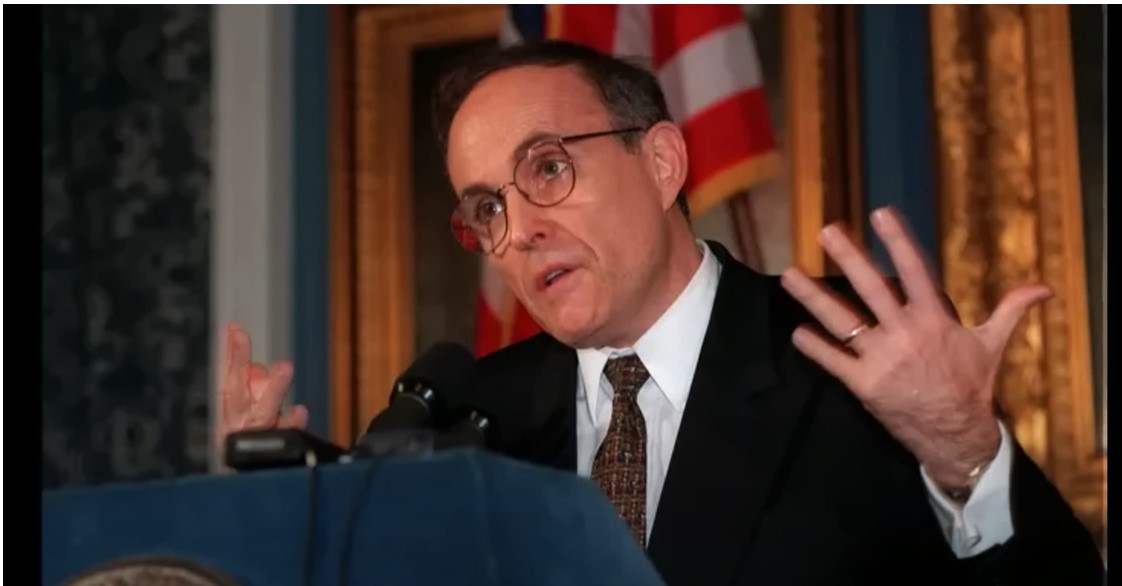Former President Donald Trump and his former lawyer Rudy Giuliani have been indicted by a grand jury in Georgia for their alleged involvement in a scheme to overturn the 2020 election results in the state. They are accused of violating Georgia’s Racketeer Influenced and Corrupt Organizations (RICO) Act, a law that was originally designed to combat organized crime and that Giuliani himself used to prosecute the mafia when he was a federal prosecutor in New York in the 1980s. Giuliani’s reputation as a tough prosecutor and crime fighter was made on his use of the RICO Act. Indeed, arguably he became NYC Mayor on the strength of that association.
The indictment alleges that Trump, Giuliani and others engaged in various criminal activities, such as making false statements, impersonating public officers, forging documents, influencing witnesses, and conspiring to defraud the state. The charge carries a minimum sentence of five years and a maximum of 20 years in prison.
The indictment is based on evidence collected by Fulton County District Attorney Fani Willis, who has frequently used the RICO law in her cases. Willis said that the indictment “allows you to tell jurors the full story” of the defendants’ actions. The indictment is one of several legal challenges that Trump and Giuliani are facing in relation to their attempts to overturn the election results in Georgia and other states. Both men have denied any wrongdoing and have claimed that the indictment is politically motivated and part of a “witch hunt” against them.
With all the talk about the RICO Act, it may be worthwhile to take a closer look at what it is and the role it has played in the prosecution of Donald Trump, Rudy Giuliani, and their associates.
The RICO Act is a federal law that allows prosecutors to charge individuals who are part of a criminal enterprise that engages in a pattern of racketeering activities. The RICO Act was originally intended to target organized crime groups, such as the Mafia, but it has also been used to prosecute white-collar criminals, such as insider traders and fraudsters.

The Racketeer Influenced and Corrupt Organizations Act (RICO) requires that the defendant has committed at least two acts of racketeering activity, such as murder, kidnapping, extortion, or drug trafficking, within a 10-year period. It also allows for civil lawsuits by victims of racketeering, who can seek triple damages and attorney fees. No doubt, it is a powerful tool for law enforcement and plaintiffs, but it is also complex and controversial.
Before RICO, crime bosses could escape liability by ordering their subordinates to commit crimes for them, while claiming innocence themselves. RICO changed that by making it possible to hold the leaders of crime organizations accountable for the actions of their associates. In this case, there is a clear chain of command between Donald Trump and his underlings (read: Giuliani), and by the same token, between Giuliani and anyone under him to whom he may have given orders to commit certain acts.
RICO also expanded the scope of criminal liability by allowing the government to charge multiple defendants for participating in a common scheme or conspiracy. RICO was originally intended to combat the Mafia, but over the years it has been applied to a wide range of cases involving political corruption, corporate fraud, gang violence, and even sports scandals.
One of the most famous users of the RICO Act was Rudy Giuliani, who as a US attorney in New York in the 1980s, successfully prosecuted several Mafia leaders—most notably, John Gotti– and Wall Street tycoons under the statute.

However, in a twist of fate, Giuliani himself has now been indicted under Georgia’s RICO Act, along with former President Donald Trump and 17 others, for their alleged roles in a conspiracy to overturn the 2020 presidential election in Georgia.
Giuliani pioneered the use of the RICO Act against the mafia by arguing that the Commission, the national governing body of the five families, was a criminal enterprise that directed and benefited from the crimes committed by its members and associates. He obtained indictments against 11 of the mob’s leaders and many of their lieutenants in 1985, based on hundreds of hours of wiretapped conversations and other evidence. Eight of them were eventually convicted and sentenced to 100 years in prison each. Giuliani’s use of the RICO Act was widely praised as a breakthrough in the fight against organized crime and helped launch his political career as the mayor of New York City.
Now it looks like he finds himself on the other end of prosecution via the RICO Act as a defendant.
His trajectory from respected crime fighter to disgraced charlatan has been stunning.












